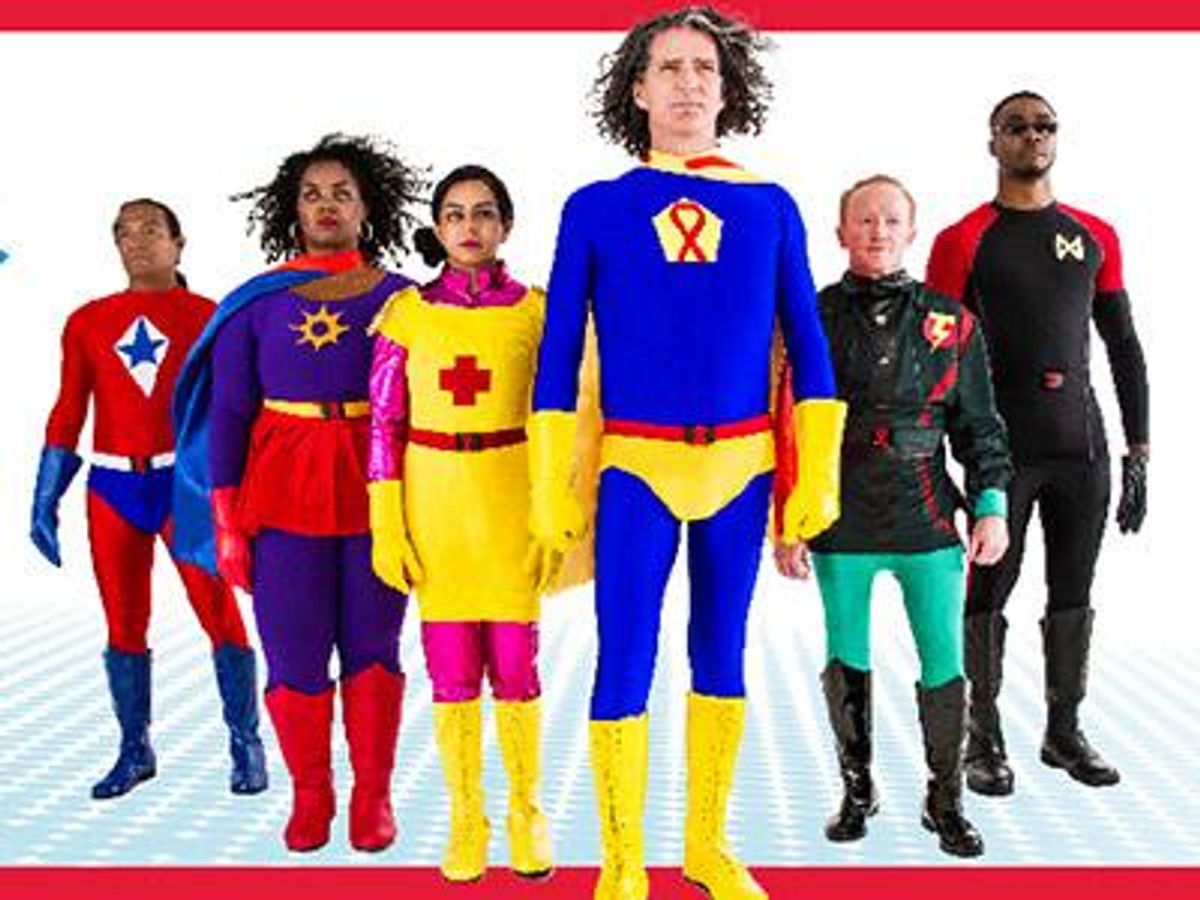Last year, we gave AIDS Walk Washington, a 29-year institution in the nation’s capital, a new name: The Walk to End HIV. It doesn’t flow off the tongue quite as easily, and some people believe strongly in keeping the old name. All of the other walks around the country to raise funds for HIV treatment, care, and prevention are still called “AIDS Walks.” So why did we change the name?
I do presentations all the time about HIV, both locally and nationally. I focus on rethinking and re-educating everything about HIV, including retiring the term AIDS. When I get to this point in the presentation, I always ask the audience to share how the term AIDS feels to them. If they need some prompting to participate, I might help them out by asking the question in a different way: “What does AIDS equal?” The answer is always the same. AIDS equals death. It feels like death. It feels like a point of no return. It feels like hopelessness. But when I ask how the term HIV feels, the responses are quite different. HIV is a virus. HIV is something treatable. HIV is something people can live with, not die from.
The first 10 to 15 years of the HIV epidemic were all about AIDS. The Centers for Disease Control and Prevention started using the term AIDS in 1982. At that time, no one even knew AIDS was caused by a virus. The CDC was simply trying to name something that caused a complete devastation of the immune system. In those days AIDS seemed nearly 100 percent fatal and dying from AIDS complications might have been quick, but it certainly wasn't peaceful. Instead it was one of the most painful and horrible deaths modern day humanity has ever witnessed.
So once a person got to the point they were diagnosed with AIDS, it was all downhill from there, and a miserable death was imminent. AIDS diagnoses became a way to track the epidemic and also a way to understand when caretakers would need to switch into an end-of-life, palliative care mode of support. These early years of the epidemic were traumatic and dramatic beyond description, and the term AIDS then made sense.
Let’s fast forward now and look at some facts about where we are now and why the term AIDS is a problem. Today, treatment for many people in the U.S. living with HIV is as simple as one pill every day. There are lots of treatment options, and most people can find a regimen that will not cause uncomfortable day-to-day side effects or debilitating long-term damage to their bodies. Those who make a commitment to stay in care and who work in partnership with their health providers and stay on treatment can realistically look forward to a full life.
Managing HIV has actually become easier than managing a chronic illness such as diabetes. In just the last few years, new research also tells us that successfully staying in care and on treatment for HIV makes it close to impossible to infect a partner, allowing people to have intimate relationships devoid of fear, shame, and guilt. We have made such incredible advancements in HIV treatment that often even the person who gets HIV and does not get tested for years and winds up in the ER with a serious illness and almost no immune function left can start treatment and within months feel good again with a restored immune system able to fight off infection.
So the bottom line is that the term AIDS has all the stigma, myths, and misunderstandings about HIV from those traumatic early years. It always will. If you tell someone they might have AIDS or that they do have AIDS, on some level they lose some hope and sense of wellbeing they will never regain. The term AIDS will forever perpetuate stigma. Stigma keeps people from being tested, from engaging in healthcare and from living full lives.
Back to that person who walked into the ER with a devastated immune system and was very sick. Rather than the doctor telling them they have AIDS, I propose the following as a much more empowering way to communicate a new diagnosis: “You have HIV, a virus. You have apparently had the virus for some time and your immune system is weak and having a difficult time fighting off infections. We have extremely effective ways to treat HIV now, and we can restore your immune system so it can fight back again and you will feel better again soon. If you stay in care and on treatment, HIV doesn't have to be something that dramatically affects your life. It’s a chronic illness that you can manage, just like millions of people living with all kinds of other chronic illnesses. And guess what? If you do this, you don’t even have to worry about infecting others. You can have a healthy intimate life and even a family."
I am pretty sure that person would leave the hospital feeling much different than if they were told they had what people still too often call “full-blown AIDS.”*
We live in a country where we have the science to keep people living with HIV healthy and well. No one ever has to have AIDS in the U.S. ever again. We live in a world where if everyone who has HIV could find the courage to get tested and into care, we could be done with the epidemic entirely. So why would we continue to use a term that elicits the fear and shame as it did 30 years ago? We know how to end AIDS and we are being more and more successful in doing so. It’s time to work on ending HIV. Let’s dump the term AIDS from our lexicon.
 Justin Goforth is a gay, HIV-positive man and Director of Community Relations with Whitman-Walker Health in Washington, D.C., where he has worked for nearly 10 years and is a veteran in fighting HIV.
Justin Goforth is a gay, HIV-positive man and Director of Community Relations with Whitman-Walker Health in Washington, D.C., where he has worked for nearly 10 years and is a veteran in fighting HIV.
*It's Plus magazine policy to not use the stigmatizing term "full-blown AIDS" because you either have AIDS or you don't, but sadly too often clinicians and others still use the phrase so we left it here for that reason.

 Justin Goforth is a gay, HIV-positive man and Director of Community Relations with
Justin Goforth is a gay, HIV-positive man and Director of Community Relations with 






































































